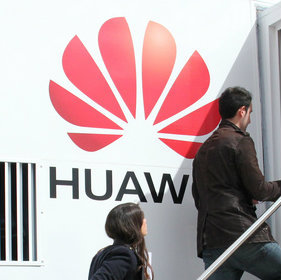
US officials have reportedly said that allowing Huawei's products to feature in the UK's 5G networks would be "madness" ahead of a government decision on the role of the controversial Chinese equipment vendor.
A US delegation led by Matt Pottinger, the National Security Advisor, presented the UK government with a dossier of new evidence about the supposed risks that Huawei poses during a meeting on January 13, according to reports by the BBC and Financial Times.
That evidence challenges the technical findings of UK security watchdogs that Huawei could figure in the country's 5G networks without any threat to national security, according to anonymous sources cited by the BBC.
The US has previously said it may stop sharing critical intelligence with countries that continue to use Chinese products in their 5G networks. The UK risks ejection from Five Eyes, an intelligence-sharing club whose other members include the US, Australia, Canada and New Zealand.
Australia has already banned Chinese vendors from its 5G market, while regulators in New Zealand warned an operator called Spark off using Huawei in late 2018. Chinese vendors have faced major restrictions in the US since 2012, when a government report first identified them as a potential security risk.
US hardliners say Huawei and ZTE, a smaller Chinese vendor, could be forced to share data with the Chinese government under the country's legal system. They also claim Chinese equipment may include "backdoors" that allow Chinese authorities to spy on other countries or even disable critical national infrastructure.
Huawei has repeatedly denied the various allegations and insisted it would rather shut down operations than share customer data with the Chinese government.
However, Chinese authorities have recently waded into the dispute. Liu Xiaoming, the Chinese ambassador to the UK, last week wrote an article in the Sunday Telegraph and posted messages on Twitter warning that an official ban on Huawei would "affect the confidence of foreign investors and the cooperation between China and the UK."
Caught between China and the US, British Prime Minister Boris Johnson is in a difficult position as the UK prepares to leave the European Union at the end of this month, following the country's "Brexit" referendum of June 2016.
Outside the European Union, the UK will be desperate to forge its own trading alliances with major global economies. Upsetting either China or the US on the Huawei issue could make it harder to reach an agreement with those countries.
Want to know more about 5G? Check out our dedicated 5G content channel here on
Light Reading.
In the meantime, the UK's telecom operators are proceeding on the assumption that officials may ban Chinese vendors from the "core" 5G network but allow Chinese products to be used on the radio access side.
The core handles important decisions about traffic routing and links to important IT systems and is therefore considered the most sensitive part of the network. Having acquired a Huawei core with its EE takeover in 2016, BT is the only UK operator with Chinese products in this part of the network, and it has been removing them to align EE with internal parent company rules.
Conversely, most service providers are heavily reliant on Huawei in their radio access networks. BT uses a mixture of Finland's Nokia and Huawei to power today's mobile services, and Huawei figures prominently in its 5G plans. Vodafone, similarly, has relied mainly on Sweden's Ericsson and Huawei to provide 4G services and is sticking by those suppliers as it introduces 5G.
Smaller service provider Three, which used Nokia and South Korea's Samsung to provide 3G and 4G services, is switching to Huawei as it begins work on the deployment of its own 5G network. The position of Telefónica-owned O2 is less clear, although it seems mainly dependent on Ericsson and Nokia as radio access network vendors.
The US argument is that any distinction between the core and the radio is blurring with the switch to 5G networks, meaning only a comprehensive ban on Huawei and ZTE would guarantee security. Ericsson has made similar remarks about this technological shift.
"5G will blur the distinction that has previously existed between the core and the radio access network," said Arun Bansal, Ericsson's European head, during an interview with Light Reading last year. "That boundary will disappear in 5G simply because of the way the architecture will be done, and it will be very hard to say this is core and this is radio."
But executives at Vodafone have insisted that a decision forcing them to dump Huawei would cost "hundreds of millions" because they would also have to replace the Chinese vendor's 4G gear with equipment from the new 5G supplier to prevent any interoperability problems.
This could drive up prices for customers and slow down the UK's rollout of 5G technology. The worry for UK authorities is that a 5G delay affects UK productivity and leads to setbacks for the wider economy.
Related posts:
— Iain Morris, International Editor, Light Reading
About the Author(s)
You May Also Like











